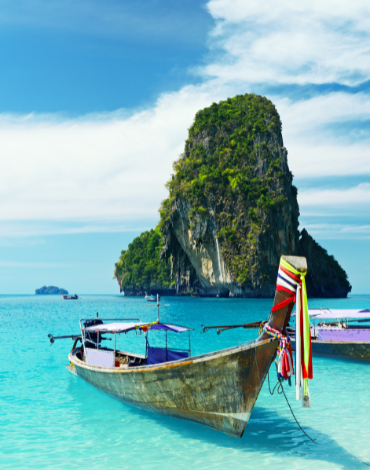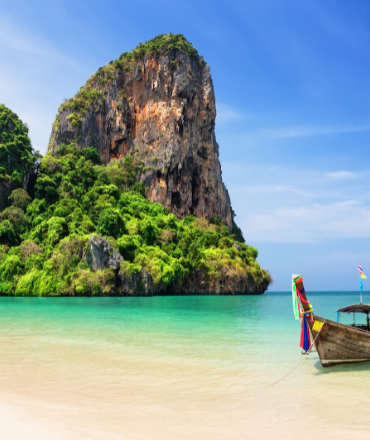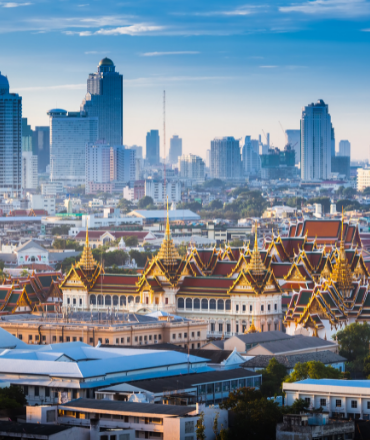Thailand is a Southeast Asian country. It’s known for tropical beaches, opulent royal palaces, ancient ruins and ornate temples displaying figures of Buddha. In Bangkok, the capital, an ultramodern cityscape rises next to quiet canalside communities and the iconic temples of Wat Arun, Wat Pho and the Emerald Buddha Temple (Wat Phra Kaew). Nearby beach resorts include bustling Pattaya and fashionable Hua Hin. In Thailand, 6.2% of the population lives below the national poverty line in 2019. In Thailand, the proportion of employed population below $1.90 purchasing power parity a day in 2019 is 0.0%. For every 1,000 babies born in Thailand in 2019, 9 die before their 5th birthday, The latest Global Peace Index puts Thailand 113th out of 153 countries with good marks for having limited access to weapons and a low homicide rate, middling marks for personal safety, and poor marks for having a high incarceration rate. Rated the 20th safest country by U.S. travelers
Throughout the era of Western imperialism in Asia, Siam remained the only nation in the region to avoid being colonised by foreign powers, although it was often forced to cede both territory and trade concessions in unequal treaties. The Siamese system of government was centralised and transformed into a modern unitary absolute monarchy in the reign of Chulalongkorn. In World War I, Siam sided with the Allies, a political decision made in order to amend the unequal treaties. Following a bloodless revolution in 1932, it became a constitutional monarchy and changed its official name to Thailand, which was an ally of Japan in World War II. In the late 1950s, a military coup under Field Marshal Sarit Thanarat revived the monarchy’s historically influential role in politics. Thailand became a major ally of the United States, and played an anti-communist role in the region as a member of the failed SEATO, but since 1975, had sought to improve relations with Communist China and Thailand’s neighbors. Apart from a brief period of parliamentary democracy in the mid-1970s, Thailand has periodically alternated between democracy and military rule. Since the 2000s, it has been caught in a series of bitter political conflict between supporters and opponents of Thaksin Shinawatra, which culminated in two coups, in 2014, and the establishment of its current constitution, and ongoing pro-democracy protests.
Thailand is a middle power in global affairs, and a founding member of ASEAN; ranking high in the Human Development Index. It has the second-largest economy in Southeast Asia, and the 22nd-largest in the world by PPP. Thailand is classified as a newly industrialised economy; manufacturing, agriculture, and tourism are leading sectors of the economy.



